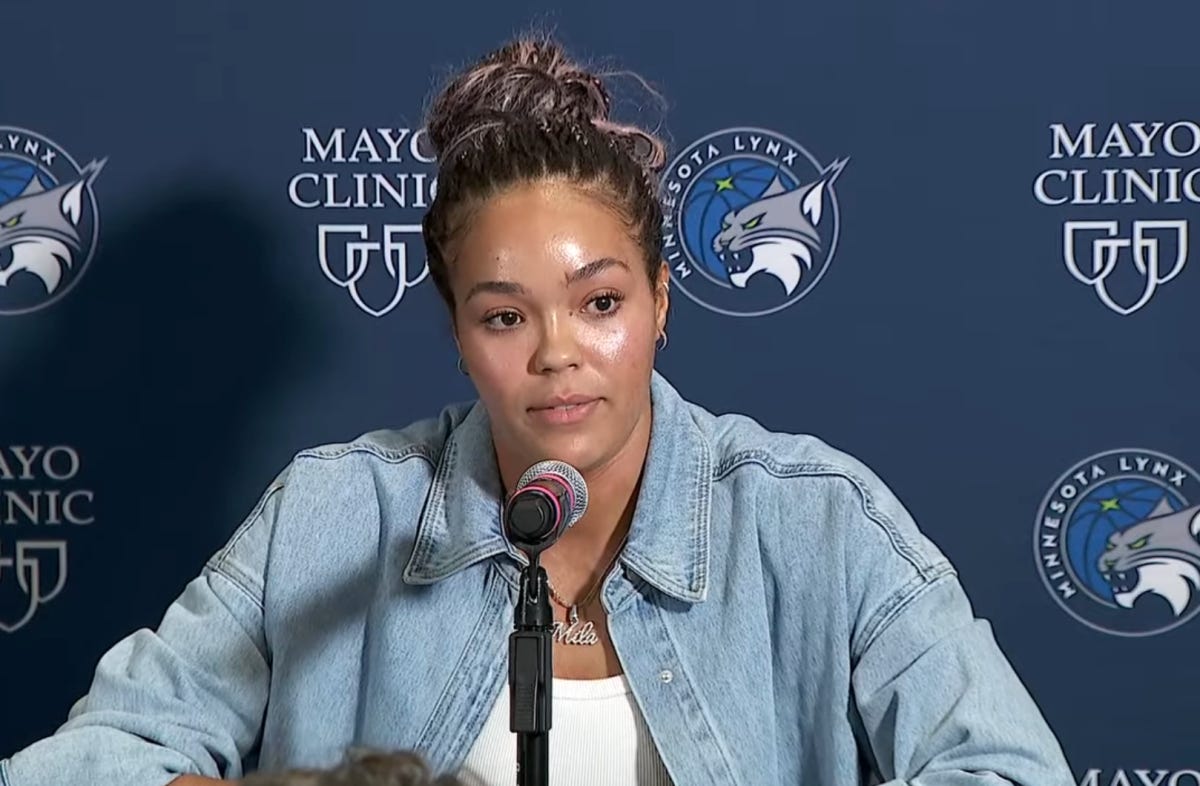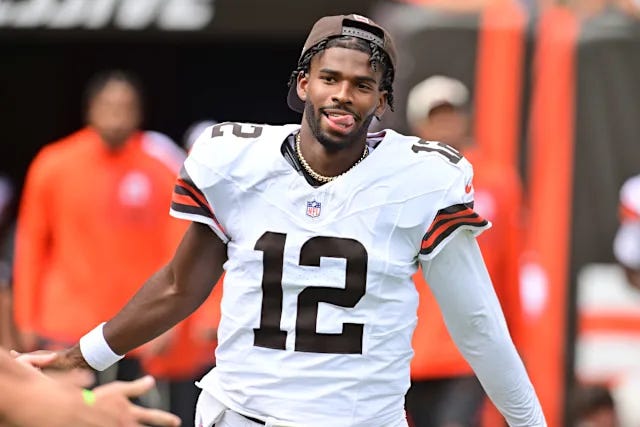Speaking Truth vs. Dodging Critics
From Napheesa Collier calling out the WNBA commissioner to Shedeur Sanders going viral, here’s what we can learn about timing and control.
Media interactions can make or break you. Sometimes the right words at the right time can rally support, spotlight injustice, and push a movement forward.
Other times, the best move is to keep your head down and let your work do the talking. The balance between speaking boldly and staying silent isn’t easy, but it’s one of the most important skills athletes and creatives can master.
Napheesa Collier: Mastering the Moment
The WNBA is standing at a crossroads. With the October 31 CBA deadline looming, the gap between league leadership and the players’ union is widening, and the stakes are bigger than one season. This isn’t just about contracts; it’s about the fight for equity in women’s sports as a whole.
That’s why Napheesa Collier’s decision to speak out mattered so much. After suffering a season-ending injury in the semifinals on the heels of a controversial no-call, she used her season exit interview to call out Commissioner Cathy Engelbert for the lack of accountability in officiating and disparaging private comments about players. Napheesa didn’t have to say anything. She knew she could be fined. She knew the criticism would come. And still, she chose to speak.
Here’s why her statement mattered:
She made it bigger than herself. Napheesa highlighted the struggles of first- and second-year players, such as Paige Bueckers, Caitlin Clark, and Angel Reese, who are among the lowest-paid players in the league despite driving unprecedented revenue and attention. By broadening the lens, Napheesa positioned herself not just as an athlete defending her peers but as a leader advocating for systemic change.
She had the right timing. With her season cut short and all eyes on the CBA fight, she knew more people would be watching and listening.
She had the credibility. As one of the league’s best players, and as the WNBA Players Association VP, she wasn’t speaking out of frustration; she was leading with purpose.
This was a masterful use of media engagement. She took a risk, knowing she could be fined, but leveraged her platform at the exact right time. That’s what leadership looks like.
Takeaways for athletes & creatives:
Speak up when it matters most, and when people are paying attention.
Use your voice for the collective, not just yourself.
Build enough brand equity and credibility that when you do speak, people listen.
Shedeur Sanders: Knowing When Silence Speaks Louder
In a different corner of sports, we saw how fragile the balance of media interactions can be. Shedeur Sanders, the Cleveland Browns’ 23-year-old quarterback, has been a model for media poise since stepping into the spotlight. Normally, he’s the definition of “keep the main thing the main thing” - disciplined, gracious, focused.
But recently, he was publicly called out by ESPN’s Rex Ryan on Get Up. Ryan didn’t hold back, saying:
“This kid talks and he runs his mouth. Like he said, ‘I can be a starting quarterback’ with his arms crossed like this. Get your ass in the front row and study and do all that. If I know, the whole league knows. Quit being an embarrassment that way. You’ve got the talent to be the quarterback, you should be. You should be embarrassed that you’re not the quarterback now.”
Instead of responding with words, Shedeur mimed his way through his most recent press availability, playfully moving his mouth in response to questions, without letting any sound come out of his mouth.
It was both entertaining and controversial. Analysts called the move “childish,” and it gave critics more fuel than they already had.
Here’s the thing: I understand why he did it. Shedeur is in an unprecedented position for a third-string quarterback, under constant media scrutiny, with every word picked apart. In that moment, he probably felt like nothing he said would be taken in good faith, so he chose humor.
But here’s what I would have advised: ignore it. Don’t let someone else’s commentary dictate your response. Every media availability is an opportunity to build your brand, and while one misstep won’t define you, consistency matters. Shedeur’s discipline has always been his strength, and sticking with that approach would have kept the focus right where it belongs - on his work.
Takeaways for athletes & creatives:
Not every critic deserves a response - sometimes silence is the most powerful tool.
Humor can lighten tension, but discipline builds long-term credibility.
If you slip up, you can always course-correct. One mistake won’t derail a consistent, thoughtful brand.
Closing Thought
From Napheesa Collier’s bravery to Shedeur Sanders’ playful defiance, these stories remind us that media moments are high stakes. The lesson? Your voice is your most powerful tool. Use it with intention. Know when to speak boldly, and when to let silence do the work.




